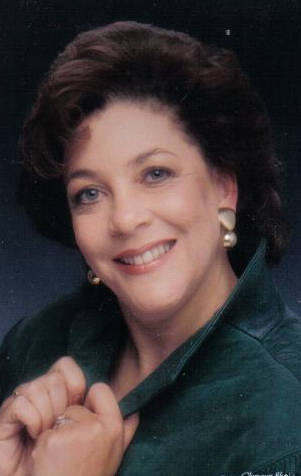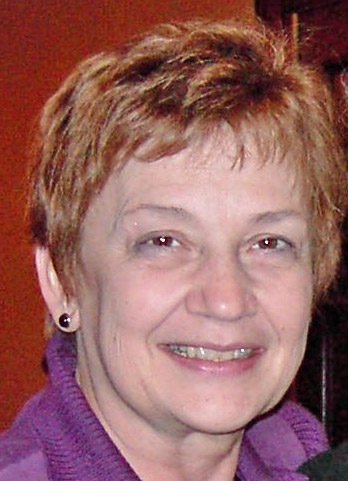As those who have grown up ourselves, raised our children, and lived our professional and personal lives among many different cross-cultural worlds both in the US and internationally, Paulette has explained why we believe this discussion is so vital to describing and finding language for the "new normals" a cross-cultural lifestyle creates for so many in today's globalizing world.
For example, I have discovered while traveling the globe to speak on issues related to Third Culture Kids (TCKs) that many in my audience will come up and say "I relate completely to the profile you describe for TCKs, but I never grew up the way my [child, student, employee] is (or did). Am I allowed to apply some of these things to my own life?"
On further exploring the stories of those who feel so connected to the issues of those who have clearly grown up among many cultures with high mobility taking them back and forth between these different cultural worlds, we began to see larger patterns emerge. Some of those sharing their stories had grown up in the former Eastern bloc countries. When the "Iron Curtain" fell, the cultural worlds in which they lived changed dramatically. No longer were they living in the traditional cultural patterns their parents had known. They hadn't physically moved to a new culture, but a new world had come to them. For international adoptees, for those raised in bi-cultural homes, many of the same issues of "Which of my many cultural selves am I?" that TCKs have often faced were theirs as well.
As we wanted to enlarge our discussions to include this growing group of those who have grown up and/or lived among this multiplicy of cultural worlds for all sorts of reasons, we started with one simple, obvious place.
Years ago, the late Dave Pollock (my co-author Third Culture Kids: The Experience of Growing Up Among Worlds) and Norma McCaig (originator of the term, Global Nomads) first used the term "Hidden Immigrant" to describe the repatriation experience of TCKs. In other words, if someone came from another country who was clearly an immigrant because he or she didn't speak the language, share the same ethnicity, or whatever, those around would give that person space to be different. Others would help these clearly defined immigrants to learn the cultural ways of this country.
When, however, TCKs who had been raised outside their passport country returned "home," they usually physically resembled those in the dominant culture around them. They spoke the language well. People assumed they were "the same" and no awareness or room was given for the fact that they did not share a common cultural upbringing.
Paulette and I began to see this same phenomenon was happening to so many she has described in her excellent introduction. For whatever reasons, the old ways of applying labels of "diversity" no longer worked because their experiences were not the traditional ones assumed for members of that "group." We expanded the term used for TCKs to "Hidden Diversity" to try and include this growing number of people whose life experience often did not match what others assumed was theirs.
The responses across the globe have been remarkable in these past few years since we began to use this language. So many have had their "aha" moment when they see that, indeed, they have been trying to fit a preassigned box but, in fact, that it is not their personal, experiential world.
The most exciting thing, to me, is that in doing this, we also begin to see some of the same benefits identified for traditional TCKs are an unnoticed gift for many others with cross-cultural upbringings. Children of minorities have often had to negotiate between markedly different cultural worlds each day as they go to and from school and home. Have we begun to tap this rich resource for our culturally changing world?
And so it goes. We invite each of you to join this discussion and see how we can continue to grow our discussions of diversity to include the many new looks it has in today's world and affirm hidden gifts even in the traditional ways we have recognized diversity so that all of us can grow and enjoy the riches of such a lifestyle.
Ruth Van Reken
Subscribe to:
Post Comments (Atom)



5 comments:
"I have discovered while traveling the globe to speak on issues related to Third Culture Kids (TCKs) that many in my audience will come up and say "I relate completely to the profile you describe for TCKs, but I never grew up the way my [child, student, employee] is (or did). Am I allowed to apply some of these things to my own life?"
I've seen this happen a lot! That's why I'm so excited about this CCK concept, since I'm multiracial and TCK myself, and I know so many of my biracial and immigrant friends at TCKID experiencing the same thing but feeling "left out". I'm looking forward to help you spread the word!
Brice from http://tckid.com
I'd like to think that a Flat World would ensure thought diversity; however, living in Upstate NY, just 2 hours from NYC, I'm amazed at the homogeneity. Now, you've given me a perspective on this. Perhaps I'm only seeing things this way due to my own TCK background. Thanks!
I am not really a TCK, but we moved constantly all around ( but within) the U.S. and traveled all over. My closest friends have all been TCK's & I greatly prefer that way of thinking.
We are 3 years into an open ended tour as a family, living large on 25K a year...so happily raising our bilingual from birth child as a TCK global citizen. I just linked to you in this post: http://tinyurl.com/7jrka5
I actually think TCK & digital nomadic living is a growing trend that will increase in this economy. I also think Web2.0 is changing the whole TCK picture & eliminates the negatives while increasing the positive aspects.
Today one is not isolated by expensive calls or snail mail with the home culture. We live in a 5th century authentic village every winter in Spain where my daughter goes to the local school & immerses deeply into her 2nd language, literature & culture.
BUT, she can also keep up with friends & family daily through free webcam skype calls ...back in the home culture, simultaneously.
We take thousands of disadvantaged school kids with us virtually & collaborate with other schools & people around the world.
I do not think it is a coincidence that a multi-cultural, biracial man TCK is president today, but a sign of the times as much as getting there through things like twitter & youtube. ;) The world is a changing.
Soul Traveler,
Thanks for posting and sharing your experience of being a TCK/CCK. I, along with many others in this field, often refer to your nomadic experience as being a domestic third culture kid. Since this time, Ruth and I have opened up the conversation to include a number of cross cultural experiences and now reference the cross-cultural kid (CCK) experience. See our article at Ruth’s website, crossculturalkid.org. Ruth will be conducting a webinar on this topic this month. I will be uploading the information this week.
I agree with your observations regarding how things have improved the experience of moving around and yet, there is still much to do.
I am very much looking forward to having a TCK in the White House. His background in already beginning to show in the selections he has made in his cabinet, as well as the worldview he expressed in his inaugural address and in watching out to leaders in the Middle East during his first day in office.
Paulette
Sandra,
Thanks for posting. I am glad that you have discovered the value and the gift of "thought diversity" that often comes through the TCK experience.
Luckily now, through social media and online venues such as TCKid.com and Facebook, TCKs are connecting with other TCKs to discuss these experiences and celebrate being a TCK.
Post a Comment